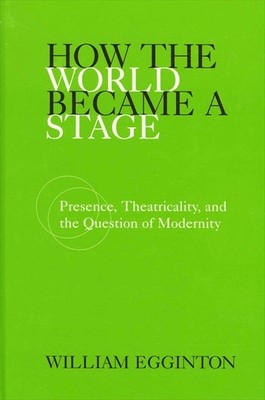
- We will send in 10–14 business days.
- Author: William Egginton
- Publisher: State University of New York Press
- ISBN-10: 0791455467
- ISBN-13: 9780791455463
- Format: 15.1 x 22.9 x 1.2 cm, minkšti viršeliai
- Language: English
- SAVE -10% with code: EXTRA
Reviews
Description
What is special, distinct, modern about modernity? In How the World Became a Stage, William Egginton argues that the experience of modernity is fundamentally spatial rather than subjective and proposes replacing the vocabulary of subjectivity with the concepts of presence and theatricality. Following a Heideggerian injunctive to search for the roots of epochal change not in philosophies so much as in basic skills and practices, he describes the spatiality of modernity on the basis of a close historical analysis of the practices of spectacle from the late Middle Ages to the early modern period, paying particular attention to stage practices in France and Spain. He recounts how the space in which the world is disclosed changed from the full, magically charged space of presence to the empty, fungible, and theatrical space of the stage.
EXTRA 10 % discount with code: EXTRA
The promotion ends in 23d.03:37:45
The discount code is valid when purchasing from 10 €. Discounts do not stack.
- Author: William Egginton
- Publisher: State University of New York Press
- ISBN-10: 0791455467
- ISBN-13: 9780791455463
- Format: 15.1 x 22.9 x 1.2 cm, minkšti viršeliai
- Language: English English
What is special, distinct, modern about modernity? In How the World Became a Stage, William Egginton argues that the experience of modernity is fundamentally spatial rather than subjective and proposes replacing the vocabulary of subjectivity with the concepts of presence and theatricality. Following a Heideggerian injunctive to search for the roots of epochal change not in philosophies so much as in basic skills and practices, he describes the spatiality of modernity on the basis of a close historical analysis of the practices of spectacle from the late Middle Ages to the early modern period, paying particular attention to stage practices in France and Spain. He recounts how the space in which the world is disclosed changed from the full, magically charged space of presence to the empty, fungible, and theatrical space of the stage.


Reviews